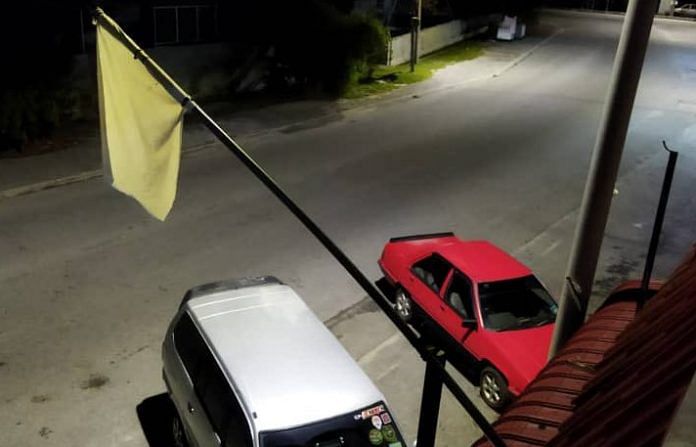Govt fails in bid to forfeit 1MDB-linked assets from Najib, family and others
KUALA LUMPUR: The High Court today ordered the government to immediately return assets which were seized from former prime minister Datuk Seri Najib Razak, his wife Datin Seri Rosmah Mansor, their three children and several others.
Judge Mohamed Zaini Mazlan made the order after dismissing the government's application which sought to forfeit hundreds of items including designer handbags, vehicles and cash in various currencies said to be linked to the 1Malaysia Development Bhd (1MDB) scandal.
In his decision, Zaini said the prosecution had failed to prove that the properties seized were connected to unlawful activities.
He said there was no evidence to show that the properties seized from Najib, Rosmah, their children Riza Shahriz Abdul Aziz (Najib's stepson), Nor Ashman and Nooryana Najwa, were bought using money in the former prime minister's bank accounts.
The prosecution, he said, had in fact admitted that some of the seized properties were gifts.
He said the prosecution's argument that the cash and properties in question could have been gained from the monies deposited in Najib's bank accounts was based on presumption.
"The prosecution merely listed down the properties seized and their value, and in turn concluded that these respondents do not have the means to such a huge amount of cash or to purchase these properties based on their income.
"They had surmised that the cash and properties concerned could have only been gained from the monies deposited in the first respondent's (Najib) accounts.
"It is apparent that the applicant had only come to this conclusion based on presumption," he said.
The judge added that there was lack of evidence to prove that there was a direct link between the monies that were alleged to have been illegally gained to the cash found and the properties bought.
He said there was simply no nexus proven in the case.
He also rejected the government's bid to forfeit the monies kept in three Hong Leong bank accounts and the RM15 million bungalow in Penang belonging to Goh Gaik Ewe, the mother of fugitive businessman Low Taek Jho saying that the prosecution had failed to prove that the bank accounts were related to or had been used for the commission of unlawful activities.
He said the relationship between Goh and any of the characters or entities in the 1MDB affairs was also conspicuously missing.
"The applicant did not offer any evidence to show how the monies deposited into these bank accounts were linked to any illegal transactions or that they were proceeds of unlawful activities.
"As for the bungalow, there was simply no averment whatsoever in any of the applicant's affidavits pertaining to it," he said.
The others who get to keep their monies following the government's failure in its bid to forfeit the assets were company Senijauhar Sdn Bhd, Aiman Ruslan, former Goldman Sachs banker Roger Ng and his wife Lim Hwee Bin.
The court however, allowed the government's bid to forfeit the assets from the respondents that did not contest the application namely Mohd Kyizzad Mesran, Yayasan Rakyat 1Malaysia, Yayasan Semesta, Yayasan Mustika Kasih and Rembulan Kembara Sdn Bhd and those who have absconded who were former 1MDB officers Kee Kok Thiam, Tan Vern Tact and Terence Geh Choh Hun.
Deputy public prosecutor Harris Ong Mohd Jeffrey Ong informed the court that the prosecution will be filing an appeal against the decision and asked for a stay of the order to return money to the respondents.
However, Zaini said the court will not make any order for a stay.
"If the forfeiture application is denied, it is a natural progression that the prosecution should return it (properties) back (to the respondents)," the judge said.
On May 8, 2019, the Attorney General's Chambers filed a notice of motion to forfeit hundreds of items, allegedly linked to 1MDB scandal, including handbags of various brands and 27 vehicles seized from Najib, Rosmah, their three children, as well as 13 individuals and companies.
In addition, money amounting to more than RM18 million in several bank accounts at Bank Islam Malaysia Bhd, Al-Rajhi Bank Bhd, Malayan Banking Bhd, CIMB Bank Bhd, RHB Bank Bhd, Public Bank Bhd, AmBank Bhd and Hong Leong Bank Bhd, that was frozen between Aug 16, 2018 and March 11, 2019.
Among the items mentioned in the forfeiture notice are handbags, shoes and watches of various brands, as well as cash in various currencies that were seized by the police on May 17, 2018 and June 11, 2018, as well as 27 Nissan vehicles that were seized on Aug 2, 2018 and a piece of land in Tanjung Bungah, Penang.
More News



















